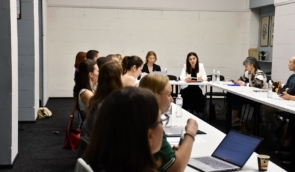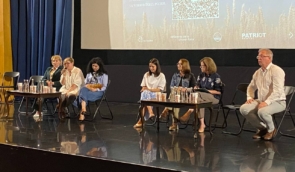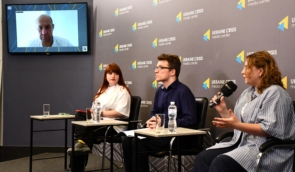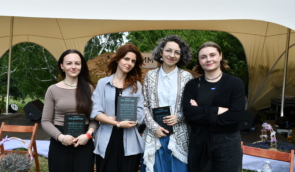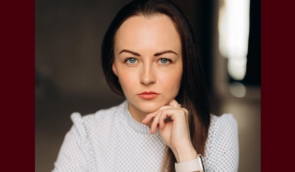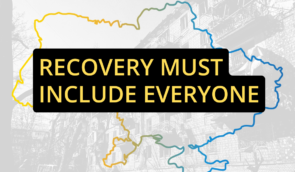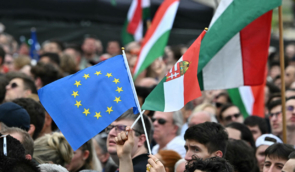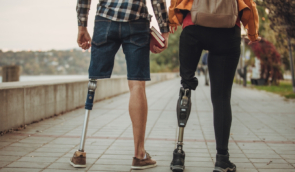She was fighting corruption in Ukraine when she was attacked with acid. Critics say the case raises hard questions for Canada
KYIV, UKRAINE—When a critical mass of mostly young Ukrainians brought down a corrupt government in a wave of protests in 2014, Katya Gandziuk’s friends never imagined she would end up murdered four years later for exposing corrupt officials.
They had fought in Kyiv’s main square, the Maidan, and some died for a vision of a new Ukraine less tied to Russia and the country’s corrupt Soviet past. And they won, at least that battle.
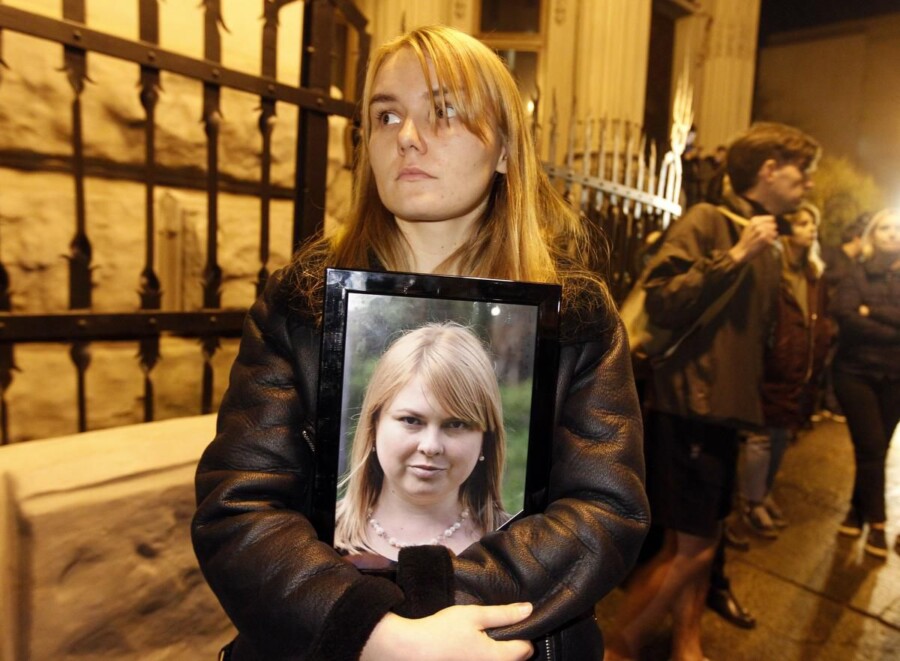 A woman holds a portrait of anti-corruption activist Katya Gandziuk, during a rally near the presidential office in Kyiv on Nov. 4
A woman holds a portrait of anti-corruption activist Katya Gandziuk, during a rally near the presidential office in Kyiv on Nov. 4Today, however, that vision is no sure thing. Even after ex-comedian Volodymyr Zelenskiy swept to an unprecedented electoral victory on an anti-corruption ticket less than a year ago, daring to expose corruption remains a dangerous, even deadly business. Gandziuk, a prominent anti-corruption activist, was murdered for it and those who ordered the killing safely evade justice.
Gandziuk’s close friend Kateryna Mola came face to face with that impunity on a recent afternoon in Kyiv, picking up her phone to find a video that made her stomach turn. Staring back at her was the man widely believed to have ordered the murder of Gandziuk in a grisly attack in 2018. A friend of hers had spotted him shopping in a ritzy commercial district in the Ukrainian capital and captured the video.
It was almost a year since the daylight attack outside her home in the eastern port city of Kherson, on the banks of the Dnieper river, and her friends and family were still coming to terms with its savagery.
It also raised questions for Canada, which in 2017 opened the door for Canadian defence contractors to export weapons to Ukraine despite concerns from a Canadian parliamentary defence committee over high levels of corruption, which Ukrainian human rights groups have linked to Gandziuk’s murder.
On a late July morning, a man ran up behind the 33-year-old and doused her with a litre of sulphuric acid as she left home for the city council office, where she worked as an adviser to the mayor. Minutes later, in an ambulance racing to the hospital, she messaged friends photos of the burns via WhatsApp, saying she didn’t think they were that bad.
They were. The acid had splashed over her head and run down her back, arms and legs, ultimately covering nearly 40 per cent of her body.
At the hospital, her friend Roman Sinitsyn remembers her doctors saying they had never seen such extensive chemical burns and had to pull out their textbooks to brush up on treatment. Within days, they transferred Gandziuk to a Kyiv military hospital for more advanced care. There, she endured nearly a dozen painful surgeries over three months before dying of her injuries on Nov. 4, 2018.
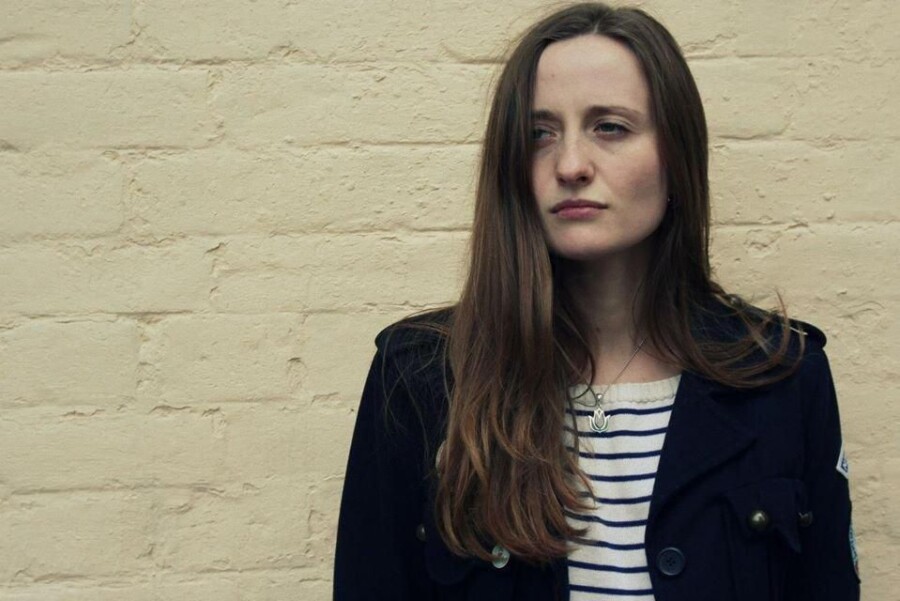 Kateryna Mola, a friend of slain Ukrainian anti-corruption activist Katya Gandziuk FACEBOOK
Kateryna Mola, a friend of slain Ukrainian anti-corruption activist Katya Gandziuk FACEBOOKBefore her killing, Gandziuk cut a conspicuous figure in Kherson, one of the last stops along the route from Kyiv to the Russian-occupied Crimean Peninsula. In her unique perch as a city official and activist, she gained a reputation for brazenly calling out local and regional officials for alleged corruption in sharply worded Facebook posts. They earned her a profile and credibility among Kherson’s reform-minded set, but made her enemy number one for the targets she exposed.
In the lead-up to the attack, she accused the regional governor and the head of the regional parliament, the man in the video, of covering up an illegal logging scheme. Her friends believe it was the straw that broke the camel’s back and spurred her killers to action.
News of Gandziuk’s death galvanized a Ukrainian public already resentful of rampant government corruption. Protests erupted in Kyiv and other cities. In the face of public anger, then-president Petro Poroshenko promised to bring the killers to justice.
Western governments took notice, too. German Chancellor Angela Merkel spoke out, as did Chrystia Freeland, who was Canada’s foreign affairs minister. Freeland took to Twitter, calling Gandziuk’s death a “tragic loss,” and demanded that her killers be brought to justice. Canada’s ambassador to Ukraine visited Gandziuk in hospital.
But with the international spotlight fading over the last year, the investigation has floundered. Five men were handed sentences ranging from three to six years for carrying out the murder on orders. Gandziuk’s father, Viktor, has called the sentences “laughable,” in part because the men saw their charges reduced as part of a secret plea agreement without the elder Gandziuk’s knowledge. No one has been tried for ordering the murder.
In the year since her death, the case has become emblematic of Ukraine’s struggle to bring the rule of law to bear on the everyday lives of Ukrainians.
Gandziuk’s mourners are not alone. Joining them in their search for justice are the survivors of dozens of other attacks against Ukrainian anti-corruption activists and the families of other murdered victims. In the last two years, Ukrainian human rights groups have documented 55 attacks against anti-corruption activists and four murders.
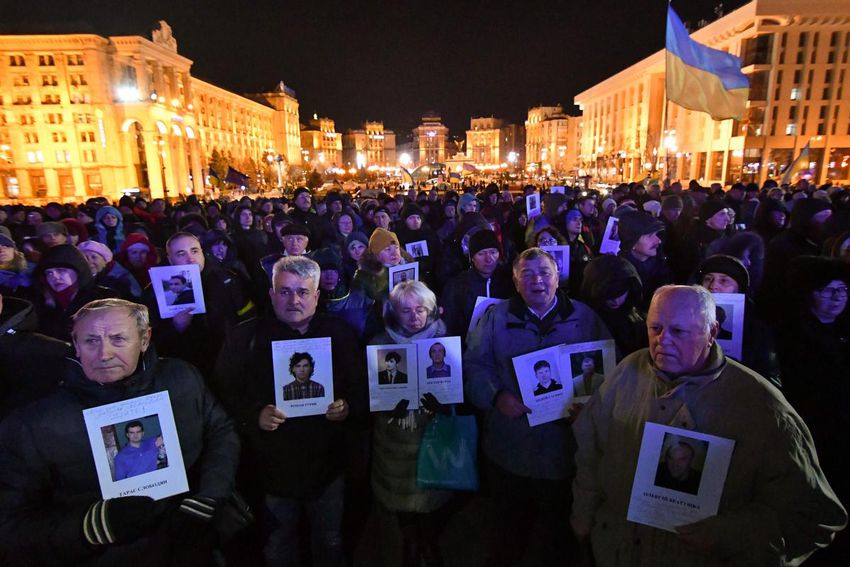
Human rights groups say the attacks are enabled by a pattern of corrupt relationships between criminals and local authorities common across Ukraine enables the violence.
“These attacks are often connected with criminal and semi-criminal circles on the local level merged with local authorities, the prosecutor’s office, and the police,” said Tetiana Pechonchyk.
Pechonchyk, the head of ZMINA Human Rights Center, a Kyiv-based human rights organization, added that these officials help cover up each other’s illegal acts to maintain the ability to illicitly profit from their official positions.
Source: The Star.
If you have found a spelling error, please, notify us by selecting that text and pressing Ctrl+Enter.

